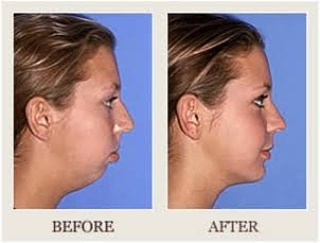You Can Have Sleep Apnea and Not Know It – Here Are the Signs
It is estimated that 80% of people who have moderate to severe obstructive sleep apnea go undiagnosed. That’s a shocking statistic when you consider how detrimental sleep apnea can be to one’s quality of life!
As an integrative dentist, I (Dr. Mandanas) have a few ways to identify patients who are more likely to have sleep apnea than others. I cannot provide diagnoses, but by looking at facial structures, I can tell you if it might be a good idea for you to ask your doctor about sleep apnea. I also have some alternative treatment methods for patients who suffer from diagnosed sleep apnea but cannot tolerate CPAP!
Early Warning Signs of Sleep Apnea
If you are reading this blog, it is likely that you have already done some research into the signs and symptoms of sleep apnea. Snoring, choking at night, and chronic exhaustion during the day are all important symptoms that should not be ignored, but the root cause of sleep apnea is actually in the anatomy of the jaw and tongue.
1. Retrognathia (Poor Jaw Alignment)
Retrognathia is a developmental deficiency affecting the lower jaw where it is set back further than it should be. In a properly aligned jaw, a ruler can be set against the chin, lips, and nose such that all three of these facial features touch the ruler in an almost perfect line with each other. Here is an example of a properly aligned jaw (after) versus a retrognathic jaw (before):

When the lower jaw is set back, the tongue and other mouth tissues are pushed backwards in the throat, creating the airway blockage that causes sleep apnea.
2. High Tongue Placement
You might think that a tongue is a
3. Mouth Breathing
Mouth breathing can be a bad habit that you were never able to kick or it can be the cause of a developmental deficiency such misalignment of the upper jaw or a collapsed arch. Either way, if someone is a mouth breather, it is likely that they also suffer from sleep apnea.
The tonsils in the back of the throat are filters designed to catch bacteria and fight it off. Your tonsils can usually handle the
4. Tongue Positioning
The tongue is a powerful muscle. Ever wondered why the top of
Some people do not have as much luck, and their tongue does not fit in the top of their mouth. This is called a collapsed arch, and it is caused by not positioning one’s tongue in the right place in the mouth. The tongue is supposed to rest on the top palate just behind the front teeth. Improper tongue positioning can cause collapsed arches and mouth breathing, both of which can cause sleep apnea.
If you are experiencing any of these signs–especially combined with other symptoms of sleep apnea–you are probably wondering what can be done! At Mandanas Dental, we provide an alternative treatment to the CPAP machine called a mandibular advancement device (MAD). The device is comfortable and easy to use. Learn more about our sleep apnea services!



